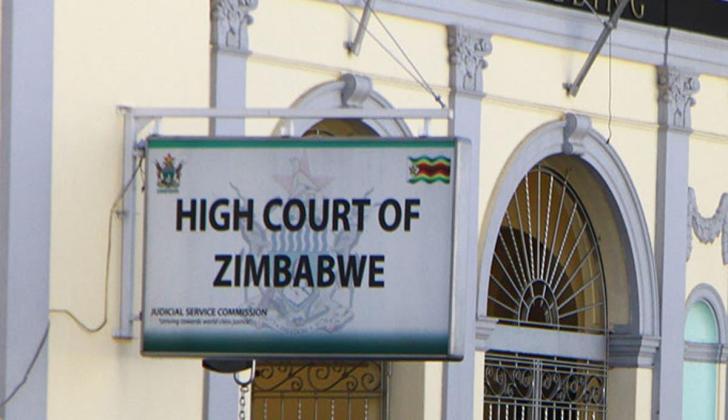News / National
Court stops Zimra from seizing vehicle of returning resident
20 Nov 2024 at 07:00hrs |
0 Views

The High Court has ruled in favor of Simbarashe Zingwe, a returning resident from the United Kingdom, halting the Zimbabwe Revenue Authority's (Zimra) attempt to seize his Range Rover TDV6 vehicle.
Zingwe, who had been granted a duty rebate for the vehicle, had left for the UK to collect personal property, but due to COVID-19 restrictions, he was unable to return to Zimbabwe in a timely manner. Zimra had sought to confiscate the vehicle after several failed attempts to find it at Zingwe's premises.
The dispute began when Zimra officials, after discovering the vehicle on two occasions, found it absent during a third visit. They then requested Zingwe to surrender the car to their offices, initiating the attempt to seize the vehicle. In response, Zingwe filed an urgent application in the High Court to block the seizure.
Justice Priscilla Munangati Manongwa, who heard the application, granted interim relief, halting the seizure pending further proceedings. Zingwe argued that he had no intention of being away from Zimbabwe for more than six months, and that the COVID-19 pandemic had prevented his return. He further contended that the regulations cited by Zimra, requiring him to seek permission for his goods to remain in the country, were not applicable as he had not planned for an extended absence.
Zimra, on the other hand, argued that Zingwe violated the Customs and Excise General regulations by staying out of the country for more than six months without prior written permission from the commissioner. The tax authority also sought to invoke section 184 of the Customs and Excise Act, which penalizes the destruction or disposal of goods to prevent seizure.
However, Justice Munangati Manongwa ruled that there was no evidence to support Zimra's claims. She noted that Zingwe had not damaged, destroyed, or disposed of the vehicle and that his extended absence was due to unforeseen COVID-19 restrictions. She further concluded that the requirement for prior written permission was not applicable in Zingwe's case, as his departure was never intended to exceed a few weeks.
The judge also highlighted that Zimra's attempts to seize the vehicle were unlawful, as there was no basis for the action under the circumstances.
"The facts before me indicate that there was no violation of section 105(8) of the Customs and Excise Regulations, and there is no evidence of any wrongdoing on the part of the applicant," Justice Munangati Manongwa ruled.
The case has attracted attention due to the ongoing tension between returning residents and Zimra over import duty rebates and the enforcement of regulations during the COVID-19 pandemic. The court's decision marks a significant victory for Zingwe in the dispute over his property.
Zingwe, who had been granted a duty rebate for the vehicle, had left for the UK to collect personal property, but due to COVID-19 restrictions, he was unable to return to Zimbabwe in a timely manner. Zimra had sought to confiscate the vehicle after several failed attempts to find it at Zingwe's premises.
The dispute began when Zimra officials, after discovering the vehicle on two occasions, found it absent during a third visit. They then requested Zingwe to surrender the car to their offices, initiating the attempt to seize the vehicle. In response, Zingwe filed an urgent application in the High Court to block the seizure.
Justice Priscilla Munangati Manongwa, who heard the application, granted interim relief, halting the seizure pending further proceedings. Zingwe argued that he had no intention of being away from Zimbabwe for more than six months, and that the COVID-19 pandemic had prevented his return. He further contended that the regulations cited by Zimra, requiring him to seek permission for his goods to remain in the country, were not applicable as he had not planned for an extended absence.
However, Justice Munangati Manongwa ruled that there was no evidence to support Zimra's claims. She noted that Zingwe had not damaged, destroyed, or disposed of the vehicle and that his extended absence was due to unforeseen COVID-19 restrictions. She further concluded that the requirement for prior written permission was not applicable in Zingwe's case, as his departure was never intended to exceed a few weeks.
The judge also highlighted that Zimra's attempts to seize the vehicle were unlawful, as there was no basis for the action under the circumstances.
"The facts before me indicate that there was no violation of section 105(8) of the Customs and Excise Regulations, and there is no evidence of any wrongdoing on the part of the applicant," Justice Munangati Manongwa ruled.
The case has attracted attention due to the ongoing tension between returning residents and Zimra over import duty rebates and the enforcement of regulations during the COVID-19 pandemic. The court's decision marks a significant victory for Zingwe in the dispute over his property.
Source - newsday
Join the discussion
Loading comments…









































